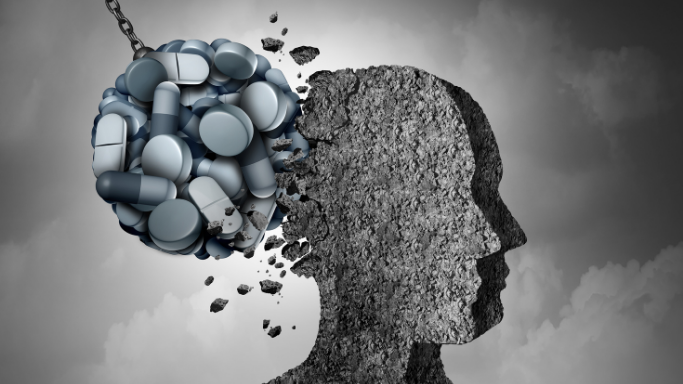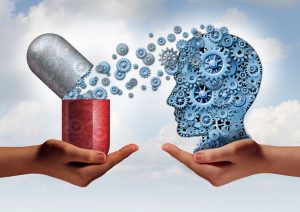The Addiction Cycle: Inside the Brain

As scientists learn more about the causes of substance use disorder, they come to understand the larger role that the brain plays in cravings, substance use, and ultimately substance abuse. If you suspect a loved one is struggling with illegal drug or alcohol abuse, learning more about the brain’s role in addiction can help you understand what your loved one is going through psychologically and physiologically during substance abuse recovery. 
The Cycle of Drug Abuse
People take drugs or consume alcohol for a variety of reasons. Some do it to have a good time or because others are trying it and they don’t want to be left out. Some do it to cope with the stress and pressure of everyday life. Some initially turn to drugs to enhance physical or mental performance, then continue using once they develop cravings. Chances are, your loved one first started using drugs or alcohol for one of these reasons.
When people begin using drugs, they often feel like they have control over their use and rationalize it by saying things like “I can stop any time I want.” Unfortunately, as someone continues to take drugs or drink alcohol, the substance alters their brain chemistry. Even when users want to quit, their brains are so strongly affected that doing so becomes difficult.
Parts of the Brain Affected by Drug & Alcohol Use
Parts of the brain that are affected by drug use include:
- The brain stem — This controls breathing, heart rate, and other life-essential functions.
- The limbic system — This is responsible for perception of emotions and ability to feel pleasure.
- The cerebral cortex — This processes sensory information as well as decision making.
How Drugs & Alcohol Affect the Brain
Certain drugs increase the amount of dopamine, a naturally occurring neurotransmitter that is already present in the brain. At normal levels, dopamine regulates baseline emotions, pleasure, and movement.
Excess dopamine in the brain, which may result from drug use, can lead to feelings of euphoria. This encourages the individual to develop positive feelings and the desire to repeat the experience. When the brain associates this euphoria with a positive experience, the user may decide to use drugs again. With continued use, the individual experiences stronger or more frequent drug cravings.
Over time, the brain compensates for the dopamine overload by producing less of it. This can cause the user to feel unhappy or flat when they are not taking drugs. At this stage, the individual may feel the need to use the drugs just to feel normal. Long-term drug use can also affect the level of glutamate, a neurotransmitter that affects the brain’s reward circuit and ability to learn.
The good news is that brain changes caused by drugs can be addressed during the recovery process. Getting your loved one into recovery can help initiate the user’s mind-body healing process. When an individual is able to stop abusing drugs and alcohol, and refrain from a relapse, brain functions can begin to normalize to pre-addiction levels.
For more information, contact Starting Point Behavioral Health at 904.225.8280.
Posted In:
Like this post? Don't forget to share it!



